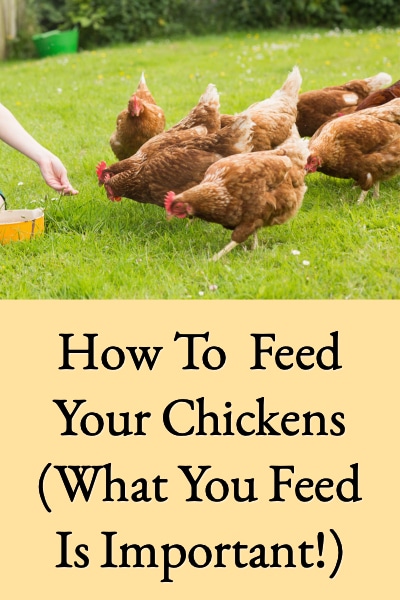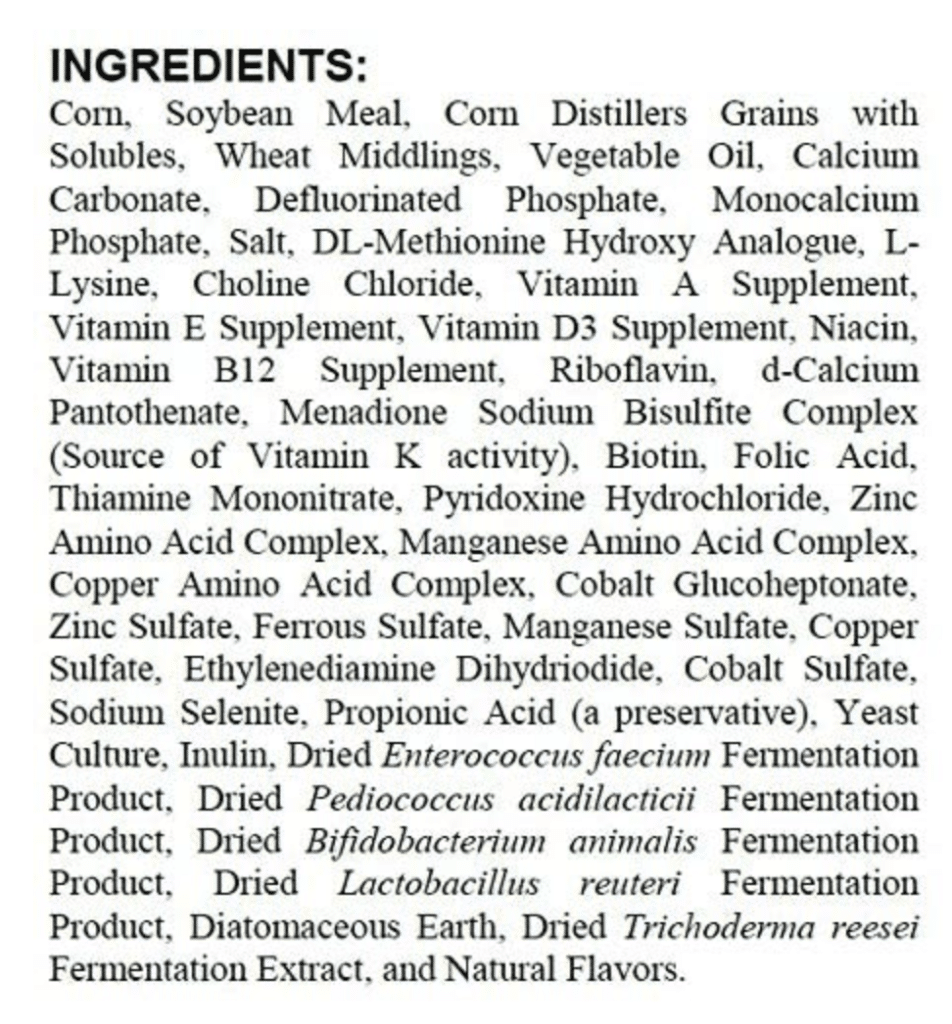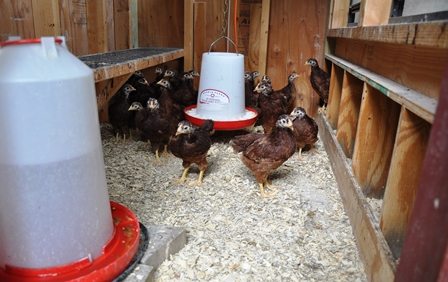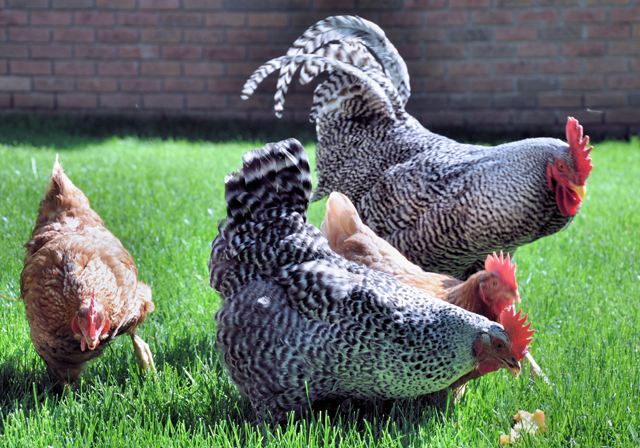
The growth, beauty, and egg production potential of a chicken is determined by its genetics. However, chickens require feed that is nutritionally appropriate for their age and type (i.e. meat, egg, or dual-purpose chicken) to reach that potential. They also need water, calcium if they are laying eggs, and grit if they are getting supplemental foods or free-ranging.
BASIC CHICKEN FEED NEEDS
All chickens need protein, carbohydrates, fats, fiber, vitamins, and minerals. There are many commercial feed brands available that have been carefully formulated to provide optimal amounts of these nutrients for each type and age of chicken (see Table 1 below).
| Chicken Type | Chicken Age | Feed Ration |
|---|---|---|
| Egg or Dual Purpose Breed | 0 - 6 Weeks | Chicken Starter |
| 6 Weeks - Laying Onset | Chicken Grower | |
| After Laying Onset | Layer | |
| Meat Breed | 0 - 6 Weeks | Broiler Starter |
| 6 Weeks - Slaughter | Broiler Finisher |
Table 1 - Basic Chicken Ration Schedule
Every bag of chicken feed sold in the United States is required to have a nutrition tag specifying these ingredients. By reading these labels and controlling what we feed, we can also ensure the inclusion or exclusion of dietary additives we want to eat (like omega-3’s) or avoid (like antibiotics) in the eggs or meat they produce.
Feed rations can also be home-mixed, but the expertise, time, and expense required mean it’s typically better to rely on commercial products. We’ve always found that the Kalmbach brand had many formulations that work well.

Example Chicken Feed Ingredient Label
For laying and dual-purpose chicken breeds, chick starter, chick grower, and layer feed rations are available. For meat chickens, broiler starter and finisher rations are available. These rations vary in formulation to promote excellent growth and production at each stage of a chicken’s life. Using the wrong formula to feed chickens can lead to weak bones, retarded growth, kidney damage, or reduced egg production.
CHICKEN WATER NEEDS
Although sometimes overlooked as a nutrition source, water is critical. An adult chicken needs to drink two to three times the weight of water that they eat in feed. Chickens will not eat if they are thirsty, which will limit growth and egg creation. So, a supply of fresh, clean water should always be available.
CHICKEN CALCIUM NEEDS
Mature egg and dual-purpose hens need large amounts of calcium to produce eggshells. Layer feed rations contain extra calcium to meet this requirement, but it’s a good idea to offer free-choice oyster shell or calcium grit. Top-producing hens may need more calcium than what is contained in the layer ration, or supplemental feeding may interfere with their ability to ingest sufficient calcium. When fed free choice, hens will self-regulate the amount of calcium they consume.

Feeding and Watering Young Chicks
SUPPLEMENTS – SCRATCH GRAINS, TABLE SCRAPS, & GRIT
Chickens love scratch grains and table scraps; but, a chicken will quit eating once it has taken in sufficient carbohydrates, regardless of whether it has consumed enough protein or vitamins. Scratch and table scraps are typically high in carbohydrates and low in nutrients, so they should be fed infrequently as a treat. It’s also better to feed these treats late in the day after the flock has gotten their dietary requirements from the feed ration.
Studies have shown that eggs from hens that free-range for grubs and insects are more nutritious and better tasting than those produced in typical commercial conditions. Free-ranging also promotes muscle development, which enhances the flavor in meat birds. So, providing chickens access to pasture is important; however, it’s best that they also have access to an appropriately formulated feed. Chickens can seldom fulfill all their nutritional needs from pasture alone.

Free-Ranging Chickens
Chickens don’t have teeth, so it’s imperative that any chicken being fed table scraps, scratch, or free-ranging has access to grit. Grit is the only mechanism a chicken has for grinding its food into pieces small enough to swallow.
THEY ARE WHAT THEY EAT
How we feed our chickens determines whether they reach their maximum potential for size, good looks, and egg creation. When fed properly, homestead chickens will flourish and provide us with healthier meat and eggs that taste far better than standard grocery store fare.
If you’re looking to get started with some chicks check out Raising Day Old or Baby Chicks.
Leave a Reply